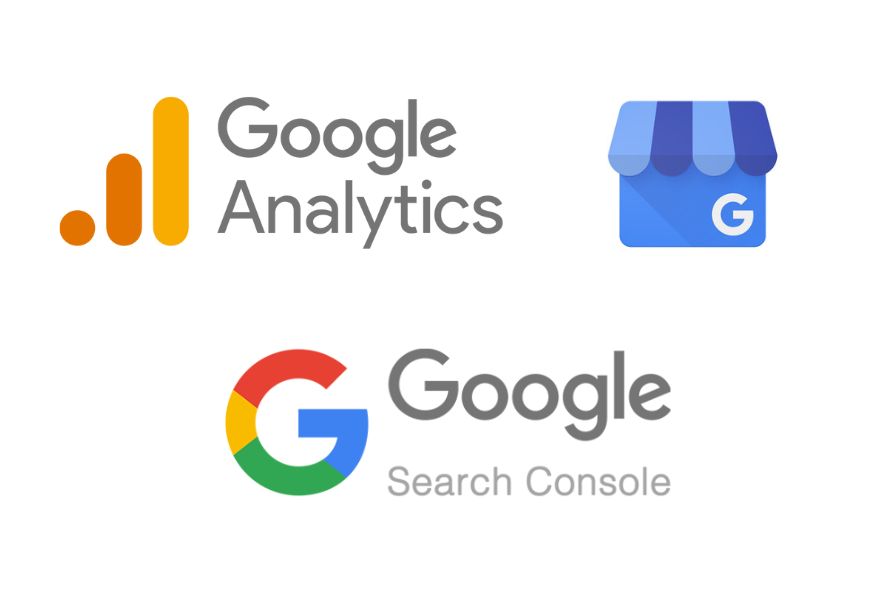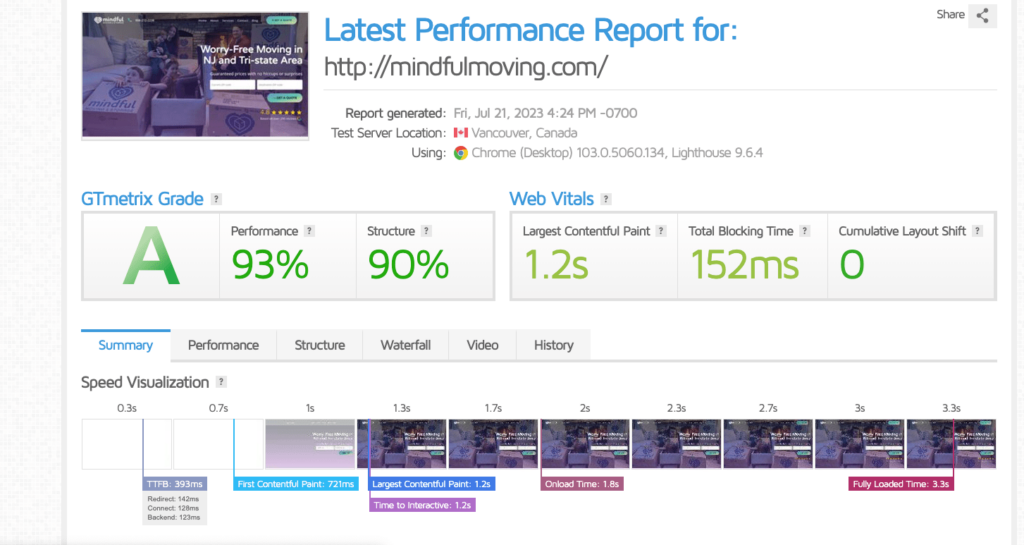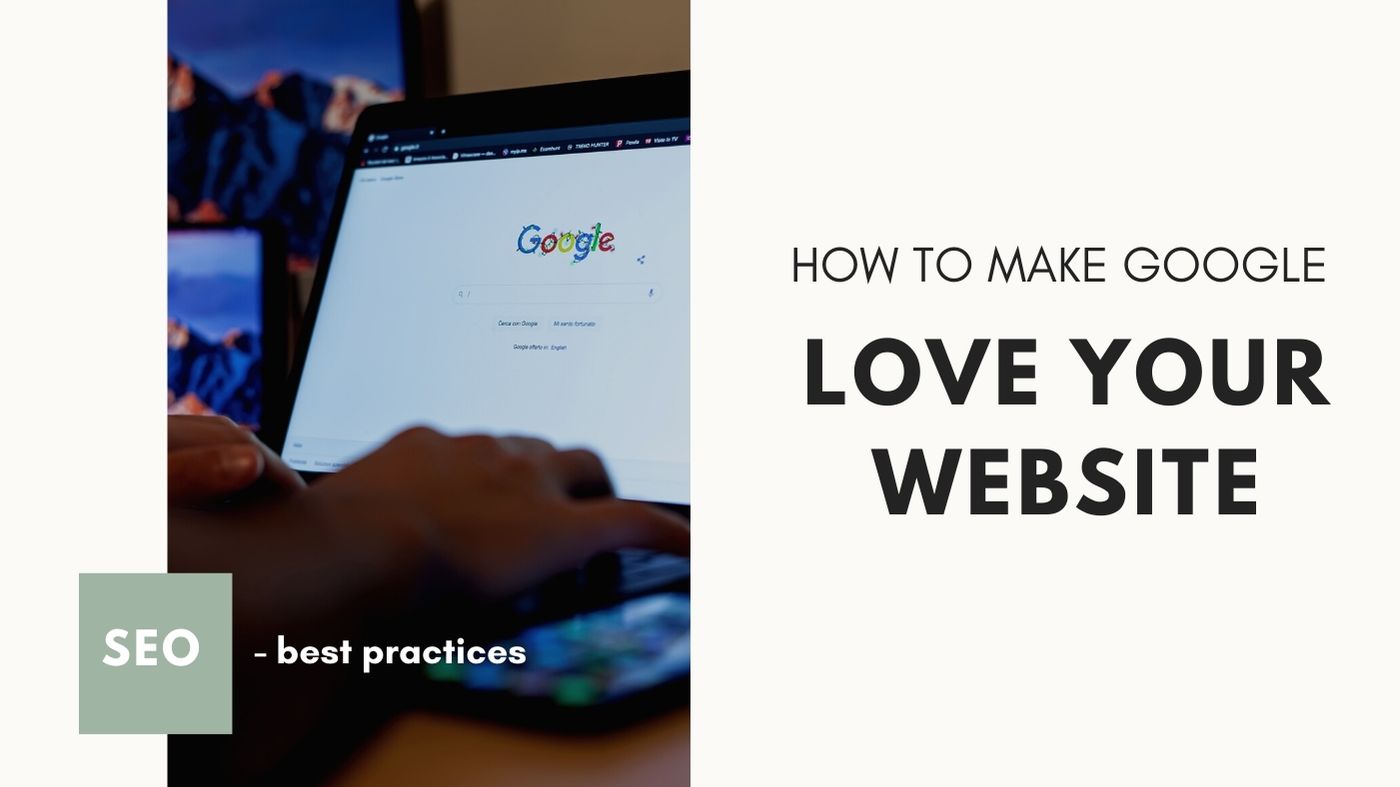1.How Google works
Google embodies so many things nowadays that it’s very difficult to grasp what exactly we should do to make our website get some Google love.
But if we talk about SEO, at its core Google is a crawler. It’s simply a mechanism for searching and finding relevant information users are looking for. A user types in his search request and Google crawls from one website to another trying to find the most relevant information among hundreds and thousands of websites.
Sometimes we overcomplicate our SEO strategies and plans by making things more complicated than they need to be. So it is helpful to remember what Google is when planning our SEO strategy.
How to make Google love your website
Relevant, unique, high-quality content
Contrary to many SEO myths and shady strategies, relevant and original content is the first thing Google looks for. Original means your content should not be plagiarized or duplicated. In the sense of relevant content, it doesn’t just mean text that is filled with keywords, like some so-called specialists sometimes do, but actual relevant content that users will read.
Visitors engaging with your content is what Google likes most. That’s how Google knows users find it relevant and it keeps showing your page to more people. By doing a good job with your content you build domain authority.
Secure site and active SSL certificate.
SSL is a standard security technology that creates an encrypted link between a web server and a client. While in previous years SSL was used mainly for those websites that accept payments, now it’s a must for every website. Some browsers don’t even display a page without a security certificate installed.
Again Google wants to make sure it sends you to a trusted site and the absence of SSL is extremely damaging to your SEO.
You can learn more about how to get an SSL certificate for your website here. To check if your website is secure and has an SSL certificate, look at the lock next to the address bar in your web browser.

One keyword or search term per page
That’s why one page websites don’t work well for search engines. Google likes pages that are optimized for one keyword only, and it’s very difficult to do that with a one-page website.
Relevant titles and descriptions
The title tag and meta description inform Google and other search engines about your website’s topic. Adding a relevant SEO title and description is critical for your SEO success, and at a minimum you should do the home page correctly.
Good internal and external linking (including a navigational structure)
Internal linking creates a structure within a website and external linking guides your visitors to relevant resources. Strong linking structures allow your visitors to easily find information and give Google a sign that your website is informative and trustworthy.
Your site is registered with all Google tools.
Google Analytics, Google Search Console, Google Business Profile – these three Google services help validate your business and develop your domain authority.

A site that is “alive”
Google doesn’t want to send people to outdated websites. It wants a site that is maintained and updated with new content. Updating your pages according to your business changes, adding videos and blog posts, rotating promotions – are all great ways to keep your website “fresh”
Decent loading time
Google wants a site that doesn’t take forever to load. It doesn’t mean you need to stress over a B on your speed test. It doesn’t have to be perfect – just good enough. You can quickly check your website speed for free here.

High-quality traffic (real people, not bots or paid traffic).
Yes, Google can see the difference. As far as traffic is concerned, quality is always better than quantity. Having 50 people actually read your content is far better than 500 people coming in and bouncing.
A site that gets engagement (comments and long views).
As we said before the more engaging your website is the more time people are willing to spend on it. This gives Google a signal that your site is relevant and trustworthy and deserves to be at the top of the search results page.
That’s why videos work so well, as do posts with comments. If you have a teaching course, it would be a good idea not to put it on a separate site as it will give you a lot of advantages with Google.

Referrals and backlinks
Referrals and backlinks are an indicator that your website is a reliable source of information for people.
Quality over quantity is again in play here. You should aim for backlinks from reputable sources. It’s helpful to remember that social media posts mentioning your website are also backlinks.
Conclusion
We’ll continue to expand on each of these points but in short, all of this combined will help build THE most important thing if you’re hoping for successful SEO – domain authority.
Once you make Google happy and it likes your site, it’ll point traffic back to you quicker and more often. It’ll move you up the search rankings and give your website priority over others it doesn’t like as much.
Shoot us an email to hello@blackcatwebstudio.com to request a free SEO AUDIT for your website.

